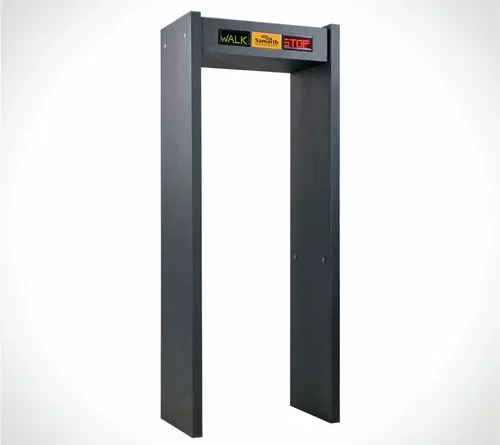Can a Walk through security metal detector Detect a Vape?
Walk through security metal detectors are commonly used in various settings, including airports, schools, and public events, to detect metal objects on a person’s body. However, with the rise of vaping and e-cigarettes, a new question has emerged: can a walk through security metal detector detect a vape? In this article, we will explore the capabilities of walk through security metal detectors in detecting vapes and the factors that affect their sensitivity.
1.What is a Vape?
A vape, also known as an electronic cigarette or e-cigarette, is a device that heats a liquid solution, called e-liquid or e-juice, to produce a vapor that can be inhaled. The liquid usually contains nicotine, flavorings, and other chemicals. Vapes are often used as an alternative to traditional cigarettes, as they are perceived to be less harmful.
2.How Do Walk Through Security Metal Detectors Work?
Walk through security metal detector use a technology called electromagnetic induction to detect metal objects. The device emits an electromagnetic field, which interacts with the metal atoms in the object. When the object disrupts the field, the detector sounds an alarm. The sensitivity of the detector can be adjusted to detect different types of metals, and some models can distinguish between ferrous and non-ferrous metals.
3.Can Walk through security metal detectors Detect Vapes?
The answer to this question is generally no. Walk through security metal detectors are designed to detect metal objects, and vapes do not contain enough metal to trigger the detector. Most vapes are made of plastic, glass, and metal, but the amount of metal in these components is relatively small compared to other metal objects. Even if the vape contains metal parts, they are often too small to be detected by a standard walk through security metal detector.
However, it is worth noting that some advanced walk-through security metal detectors designed specifically for detecting non-ferrous metals, such as those used in security screening, may be able to detect vapes. These detectors use different technologies, such as x-ray imaging or magnetic field detection, which can be more effective at detecting non-ferrous metals.
- Factors That Affect Walk through security metal detector Sensitivity
The sensitivity of a walk through security metal detector can be affected by several factors, including the type of metal, its size, and the orientation of the detector. For example, a detector may be more sensitive to ferrous metals, such as iron and steel, than to non-ferrous metals, such as aluminum and copper. Additionally, the size of the metal object can affect its detectability, with smaller objects being more difficult to detect. The orientation of the detector can also make a difference, as some models may be more sensitive to metals when they are detected from a particular angle.
Conclusion:
In conclusion, while standard walk-through security metal detectors may not be able to detect vapes, advanced detectors designed specifically for non-ferrous metal detection may be more effective. However, it is important to note that vapes do not contain enough metal to pose a significant security risk, and the use of vapes is generally allowed in most settings. If you are unsure about the security policies regarding vapes in a particular setting, it is best to check with the relevant authorities or the venue owner.




